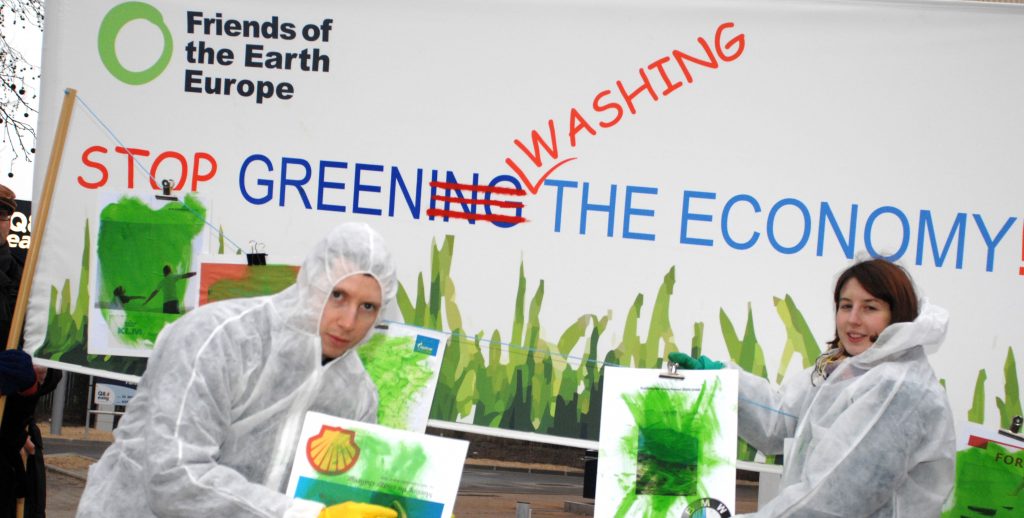Brussels/Berlin/Hamburg, July 15, 2011 – Lufthansa launches its first controversial bio-fuelled flight today, amidst outcry from green groups [1]. Fuelling aeroplanes with biofuels presents Lufthansa and the aviation industry with a convenient smokescreen, greenwashing their image, facilitating the airline industry’s expansion plans and diverting political attention from the real need to cut air travel in order to tackle climate change [2].
With €2.5 million support from German taxpayers, Lufthansa’s biofuel flight is the first of 1,200 bio-fuelled short-haul flights between Hamburg and Frankfurt – a four hour train journey.
Lufthansa, and their fuel supplier Neste Oil [3], have so far refused to reveal the origin or type of fuel used on the flight. However, Lufthansa has claimed that it is attempting to collect “every single jatropha nut in the market” to source its future biofuels [4]. The expansion of jatropha crops are instrumental in driving land-grabs and forced evictions, including in countries such as Mozambique and India [5]. The airline has estimated it would have to plant 4 million hectares of jatropha (an area equivalent to 35% of Germany’s arable land) to meet their 2025 biofuel plans. [6]
Robbie Blake, biofuels campaigner for Friends of the Earth Europe said: “Lufthansa is painting itself green with biofuels – but these flights are anything but environmentally friendly. Biofuels exacerbate poverty and hunger, drive land grabbing and deforestation, push up food prices, and make climate change worse.
“Short-haul flights from Hamburg to Frankfurt, bio-fuelled or not, can never be green. Lufthansa’s passengers, and the climate, would be better off catching the train.”
Last month ten international organisations, including the World Bank, WTO, UN and OECD called on G20 governments to scrap biofuel subsidies and mandates because of their impact on world poverty and food prices [7].
Lufthansa are expected to back their green claims with sustainability certification schemes like the Round Table on Sustainable Biofuels (RSB). These schemes are industry led, highly controversial, and are likely to mislead the public.
Almuth Ernsting, from Biofuelwatch added: “Lufthansa and Neste Oil will seek to justify their sustainability claims by citing certification schemes, or offering their own assurances. In reality, both amount to greenwashing. For example, Neste Oil recently bought so-called certified ‘sustainable’ biofuels ruled by a Malaysian court to have been sourced from illegally appropriated and deforested land in Sarawak.”
***
Notes:
[1] Friends of the Earth Europe, BUND, Biofuelwatch and Rainforest Rescue/Rettet den Regenwald [2] “Flying in the face of facts: Greenwashing the aviation industry with biofuels”, Friends of the Earth Europe’s analysis on the impact of aviation biofuels. [3] Lufthansa has contracted Neste Oil – voted “worst company of the year” by members of the public in the Public Eye Awards – to provide 800 tonnes of NExBTL biofuel. Neste Oil is Europe’s largest importer of environmentally and socially destructive palm oil.http://www.publiceye.ch/en/news/presse-release-041311/
http://www.publiceye.ch/en/vote/neste-oil/
NExBTL is a biodiesel mix of animal and vegetable fats, normally containing 81% palm products (palm oil, PFAD and stearin). http://www.nesteoil.com/default.asp?path=1,41,11991,12243,15658
However, Lufthansa has claimed that “the fuel does not come from palm oil”
http://www.smartplanet.com/blog/intelligent-energy/biofuels-fly-mainstream-lufthansa-passenger-flights-taking-off/7548
sponsor_biofuel_six_times_worse_than_fossil_fuels.html [5] “The jatropha trap? the realities of farming jatropha in mozambique”
http://www.foei.org/en/resources/publications/pdfs/2010/the-jatropha-trap-the-realities-of-farming-jatropha-in-mozambique/view [6] http://www.airportsgoinggreen.org/Content/Documents/Joachim%20Buse.pdf [7] http://www.reuters.com/article/2011/07/08/us-eu-biofuels-idUSTRE76726B20110708






